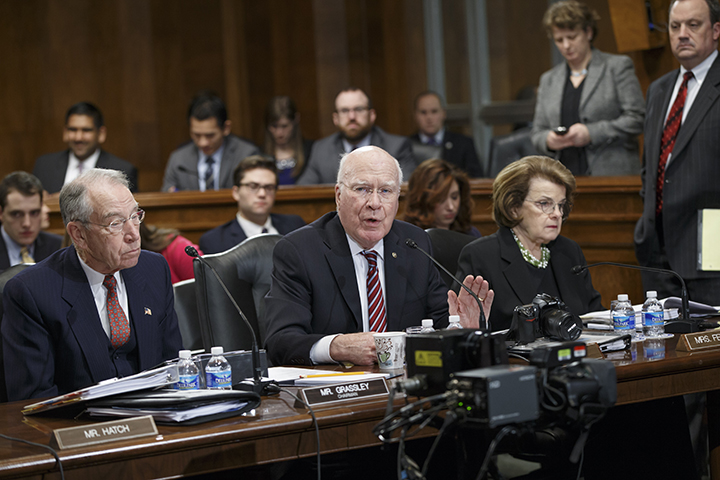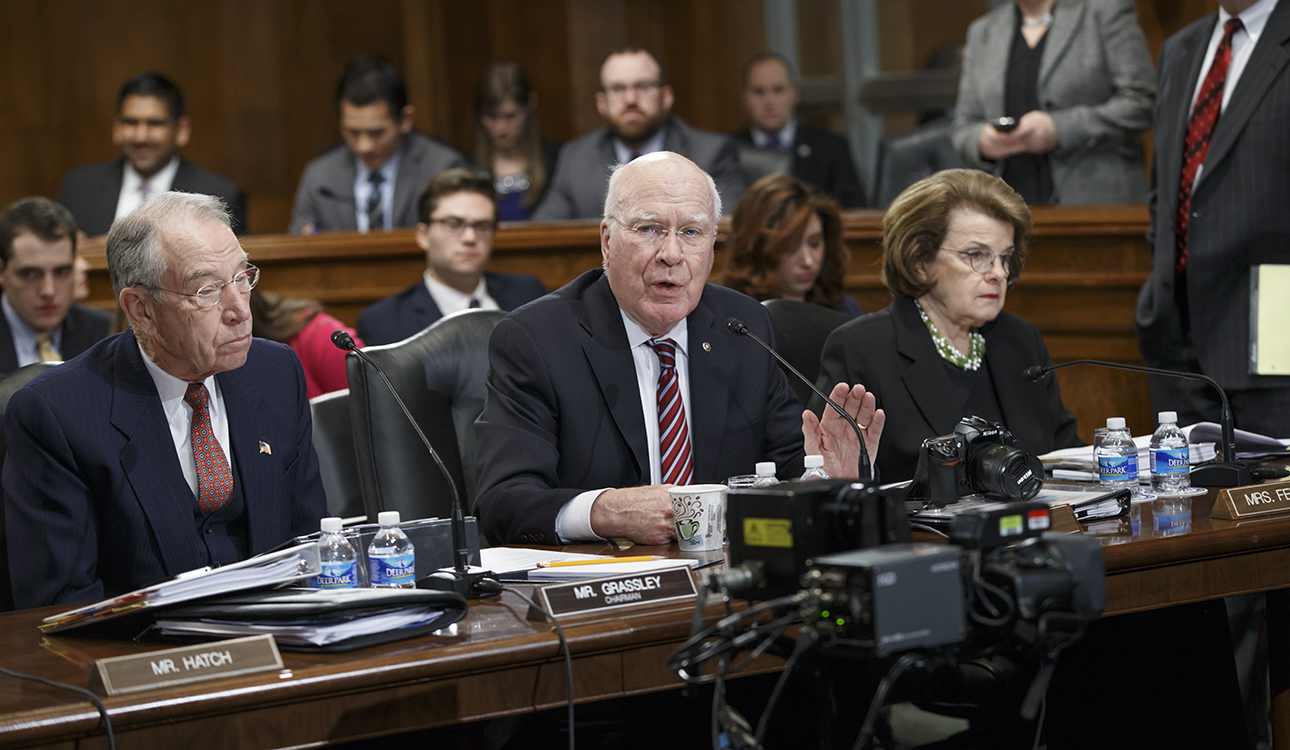
Associated Press
By Erica Werner
Associated Press
WASHINGTON — Loretta Lynch won approval from a key Senate committee Thursday to serve as the nation’s next attorney general, as divided Republicans clashed over her support for President Barack Obama’s immigration policies.
The 12-8 vote in the Judiciary Committee sent Lynch’s nomination to the full Senate. Three Republicans joined all committee Democrats in voting “yes.”
“The case against her nomination, as far as I can tell, essentially ignores her professional career and focuses solely on about six hours that she spent before this committee,” said Sen. Orrin Hatch, R-Utah, as he criticized fellow Republicans for using Lynch’s testimony in support of Obama’s executive actions on immigration as a reason to oppose her nomination.
“I do not believe that is a proper way to evaluate any nominee’s fitness for any position,” Hatch said.
But GOP Sens. Jeff Sessions of Alabama and Ted Cruz of Texas, among others, insisted that Lynch disqualified herself with her support for those directives and had not shown she would be sufficiently independent from Obama.
“The president’s policy is to allow people unlawfully here to take jobs in America — a policy she has explicitly stated she intends to defend,” Sessions said. “We should not confirm someone to that position who intends to continue that unlawful policy.”
Despite the disagreement, Lynch is all but assured approval by the full Senate, under new rules that will require only a majority vote instead of the 60-vote margin required for most legislation. But unlike Obama’s defense secretary nominee, Ash Carter, who was approved by an overwhelming bipartisan vote of 93-5 earlier this month, Lynch is unlikely to win approval by a resounding margin. As Thursday’s debate illustrated, GOP opposition to Obama’s immigration policies has become entwined in a variety of issues in the newly Republican-run Congress.
Committee Democrats took turns denouncing their Republican colleagues for using the immigration issue as a reason to oppose Lynch, 55, who now serves as U.S. attorney for the Eastern District of New York.
She would replace Eric Holder and become the first black woman to hold the nation’s top law enforcement job.
The directives extended work permits and deportation stays to millions in the country illegally.
GOP Sens. Lindsey Graham of South Carolina and Jeff Flake of Arizona joined Hatch in voting to support Lynch.
Graham suggested other Republicans find another outlet for their opposition to Obama’s immigration plans.






